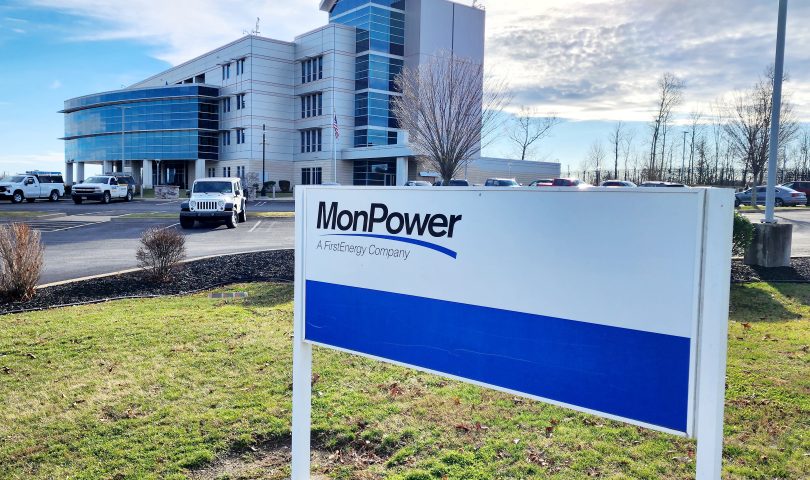MORGANTOWN – Mon Power and Potomac Edison have reached settlements in two of their three rate hike cases filed with the state Public Service Commission.
One settlement is their ENEC case — expended net energy cost — designed to allow utilities to cover their costs of producing power. They originally asked for $167,465,330 which they project would have added $9.19 to the average monthly residential bill, raising it from $120.20 to $129.39 — a 7.8% hike.
This request was intended to cover only a portion of unrecovered production costs, with the remainder to be deferred until their 2024 ENEC filing.
The other settlement is to fund their Vegetation Management Program. It proposes an increase of $16,969,398 to take effect Jan. 1, 2024, and $16,989,110 to take effect Jan. 1, 2025 — for a total of $33,938,795.
In the ENEC case, originally filed Aug. 31, the companies and the other parties involved agreed to a total under-recovery of $254,886, 662, to be spread across three time periods: $55,427,038 to be recovered March 27, 2024, through Dec. 31 (this factors out a $15,234,610 over-recovery); $92,112,507 to be recovered Jan.1-Dec. 31, 2025; and $92,112,507 to be recovered Jan. 1-Dec. 31, 2026.
This postpones the companies collecting the first round until March 27, when their third rate case for new base rates is set to take effect.
The companies also agreed to forego an ENEC filing for 2024, unless they either under-recover or over-recover by a total $50 million from January through June. If that occurs, any party involved in this settlement may seek a new ENEC proceeding by Sept. 1, 2024.
Also included in the settlement: The companies agreed to develop a plan to manage off-site coal inventories, to create a coal procurement manual, to look into pricing alternatives for Fort Martin coal purchases to reduce ratepayer costs, and to evaluate options for complying with the federal Good Neighbor Plan that will require power plants in 22 states to reduce their NOx emissions by 50% compared to 2021 levels.
In the Vegetation Management Plan settlement, the parties agreed to the companies’ proposal as presented to the PSC. They were seeking an increase of $16,969,398 to take effect Jan. 1, 2024, and $16,989,110 to take effect Jan. 1, 2025 — for a total of $33,938,795. They say this reflects an overall 1% increase aggregated against all their customer classes.
For the average residential customer using 1,000 kilowatt hours per month, they project a hike of $2.47 per month, raising the bill from $120.20 to $122.67.
The program is designed to control vegetation along distribution and transmission lines to ensure safe and reliable operation of their system. FirstEnergy previously told The Dominion Post that the companies file to update their vegetation management surcharge every two years.
From January 2019 through December 2022, the program covered 29,430 miles, trimming almost 2.3 million trees, removing 552,284 trees, and clearing or spraying 98,042 acres.
Along with the $2.47 vegetation management surcharge starting Jan. 1, the average residential power user will see a $3.77 increase during the first period of the ENEC rate hike, starting March 27.
The Dominion Post asked for the rate impacts of the subsequent two periods of the ENEC case, but the companies were unable to provide them by deadline.
The parties involved in the ENEC case were PSC staff, the PSC Consumer Advocate Division, the West Virginia Energy Users Group, the West Virginia Coal Association, the West Virginia Citizen Action Group, Solar United Neighbors and Energy Efficient West Virginia. Longview Power had intervened in the case and object to the companies’ request but did not sign on to the settlement.
Signing on to the vegetation management settlement were PSC staff, CAD and WVEUG.
The remaining case is their base rate hike request: $207.5 million for infrastructure and for their energy assistance program. The hike would cost the average residential customer $18.07 per month — raising a bill from $120.20 to $138.27.
Jim Myers, president of FirstEnergy’s West Virginia operations, commented, “We’re pleased to have reached agreements that allow us to continue making the important investments that support our commitment to a smarter energy future while minimizing the impact on customer bills. Continued focus on cost management and careful planning will help us keep our West Virginia rates the lowest among investor-owned utilities in the state and lower than the national average.”
Email: dbeard@dominionpost.com




